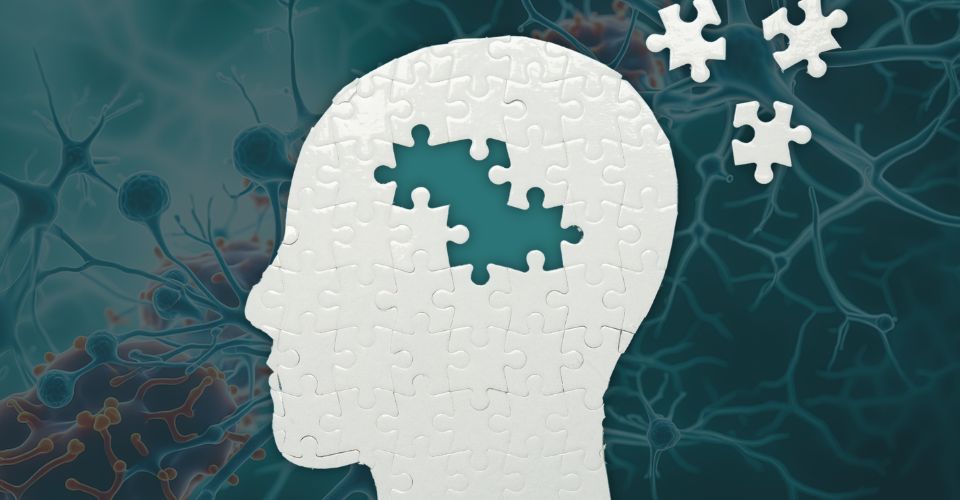Key Findings on Alzheimer’s Susceptibility
Understanding why some people are more vulnerable to Alzheimer’s disease, a severe illness that occurs when amyloid-beta interacts with apolipoprotein E (APOE), is a key finding. These revelations were made in the Nature Communications journal and portray how this genetic variant works in connection with amyloid-beta. The possibility of suffering from Alzheimer’s results from an interaction between these two. In particular, according to researchers, the harmful effects of amyloid-beta accumulation in the brains are increased by APOE4 variant which could become a target for new treatment possibilities.
Understanding Alzheimer’s Disease
Memory loss, cognitive decline, and personality changes are characteristic symptoms of Alzheimer’s disease which is a debilitating neurodegenerative disorder. Before signs appear, large quantities of amyloid-beta protein begin to amass in the brain thereby forming clumps known as plaques. These formations hinder normal functioning of brain cells causing an escalation of the condition over time.
The Role Of APOE In Alzheimer’s Risk
Among common forms like ApoE 2, Apo E3 and ApoE 4; APOE is considered one of the foremost genetic risks for AD. While there is little or no effect caused by APOE3 compared to other forms, its impact is higher on APOE4 greatly increasing chances for developing AD.
Investigating The Role Of APOE4 Variant
The research sought to determine how amyloid-beta accumulates in relation to Alzheimer’s patients who had been confirmed or ruled out with APPswe mice having different genotypes at codon 717 (apo-E being either present or absent). This would allow them find novel therapeutic targets capable of slowing down or preventing this progressive neurological disorder among patients harboring APOE4 genotype. By using a human skin cell-derived model of the brain, a new approach was utilized by these researchers.
Key Findings: APOE4 Increases Toxicity and Accumulation
The study showed that all forms of the APOE gene interact with amyloid-beta while it is still in its early stages of accumulation in the brain. The reason why this variant, APOE 4, is so significant is because unlike the others (APOE 2 and 3), it makes amyloid beta more toxic to nerve cells and causes this peptide to accumulate more quickly than would otherwise be possible.
These two factors are important since amyloid-beta plaques are one of earliest signs of Alzheimer’s disease which start forming decades before clinical onset. Alzheimer’s disease begins when these plaques disrupt neuronal function leading to cognitive impairment and memory loss.
Harmful Clumps Identified
The most notable discovery from this research was identification of specific harmful clumps or aggregates formed through interactions between Apo E4 and A-β – aggregates that were particularly toxic to neurons indicating their potential importance during AD progression.
Implications for New Therapies
They posit that targeting these dangerous aggregates through removal or neutralization may help protect against damage caused by amyloid-beta on neurons. This possibility represents an opportunity to improve the clearing process of toxic amyloid-beta as well as slow down its deposition in the brain thereby offering novel treatment strategies for AD.
Expert Insights
“Our findings have identified the existence of APOE4-Aβ co-aggregates or clumps. As we focus on this clumping, we can mitigate damage to brain cells from amyloid-beta, facilitate toxic amyloid-beta clearance and potentially reduce its build-up rate. This opens up potential for new therapies that target these specific protein clusters, offering a new avenue for combating Alzheimer’s disease,” said Suman De, the study’s lead author from the University of Sheffield’s Institute for Translational Neuroscience.
Limitations of Current Treatment
Another problem with current treatments is that they are mainly focused on removing amyloid-beta in the brain (McGowan et al., 2005). Despite showing some promise recently, their effects are moderate especially among patients carrying APOE4 gene (Chen et al., 2012). One explanation is that these therapies are typically given too late into the disease when there has been extensive damage to brain cells due to an accumulation of Aβ (Doody et al., 2013). The results of this study suggest that early intervention aimed at addressing these harmful aggregates formed by APOE4 and amyloid-beta may be more effective in reducing or stopping Alzheimer’s progression.
Conclusion
“Individuals with one particular version of an inherited gene known as APOE have a much higher likelihood of developing Alzheimer’s as a result of such discovery” said De. Even though scientists have long been aware about this risk associated with having an APOE gene variant, our research paper explains how different types of APOE genes promote increased deposition of amyloid-β leading to greater chances of getting Alzheimer’s disease.”
Research Paper Details
The authors are Eric Hidari, Eleni Dimou, Damian C. Crowther, David Klenerman and Suman De Zengjie Xia; Emily E. Prescott; Agnieszka Urbanek; Hollie E. Wareing; Marianne C. King, Anna Olerinyova, Helen Dakin, Tom Leah, Katy A. Barnes, Martyna M. Matuszyk; Yu P. Zhang; Jeff Y. L. Lam; John S. H. Danial; Michael R.; Hong Jiang and Peter Thornton: Malm Tarja Simon M Bell Laura Ferraiuolo Heather Mortiboys Adrian Higginbottom Stephen B Wharton David M Holtzman Rohan T Ranasinghe, and David Klenerman.











Leave a Reply
You must be logged in to post a comment.